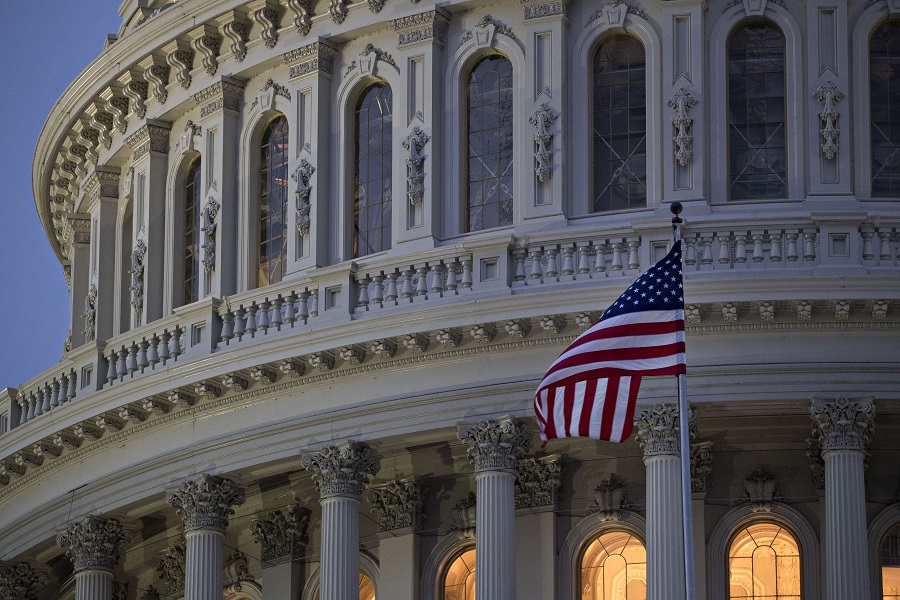IRS SECURE 2.0 “Grab Bag” Guidance – Other Issues

This is the last of the articles on recent IRS “Grab Bag” guidance on certain provisions of SECURE 2.0 (Notice 2024-02). In this article, we’ll cover certain other guidance included in the “Grab Bag” relevant to qualified retirement plans: SECURE 2.0’s new automatic enrollment requirement; the military spouse tax credit; and the new rule allowing “de minimis financial incentives” to boost 401(k) participation.
Expanding automatic enrollment in retirement plans
SECURE 2.0 provides that, effective for plan years beginning after 2024, 401(k) plans established on or after the date of enactment of SECURE 2.0 (December 29, 2022) must default participants into the plan at a contribution rate of at least 3% of pay, escalating each year by 1% up to at least 10%. The new rule does not apply to plans adopted before the date of enactment, for the first 3 years of a new employer’s existence, or to employers with 10 or fewer employees.
The “Grab Bag” Notice provides that:
- For purposes of the exception for plans established before the date of enactment of SECURE 2.0, a plan is considered established “on the date plan terms providing for the [salary deferral elections] are adopted initially. This is the case even if the plan terms … are effective after the adoption date.”
- If two plans both of which qualify for the pre-enactment exception are merged, the merged plan also qualifies for the exception. If a plan is spun off from a pre-enactment plan, the exception would continue to apply in most cases. Generally, when a plan that does qualify for the exception is merged with one that does not, the exception is lost. It may be possible, however, with respect to certain mergers, under certain circumstances, to preserve the exception where the merged plan is designated as the ongoing plan.
- Generally, the automatic enrollment rules would apply to Starter 401(k) plans.
Military spouse retirement plan eligibility credit for small employers
SECURE 2.0 provides a new small employer (100 employees or less) tax credit for defined contribution (DC) plans that provide that military spouses are, within two months of hire, immediately eligible for and fully vested in employer non-elective and matching contributions otherwise available to participants with 2 years of service. The tax credit is the sum of $200 per military spouse, plus up to $300 of employer contributions, per year for 3 years.
The “Grab Bag” Notice provides that:
- The 100 employees or less requirement must be met for each year for which the credit is claimed.
- Where an employer provides DC benefits that do not qualify for the military spouse credit and then either amends or adopts a plan that does qualify, the 3-year credit period begins when a military spouse begins participation in that plan (or in the case of an amendment, when the amendment is effective).
- While the credit is only effective for taxable years of the employer beginning after December 29, 2022, where the 3-year credit period begins before 2023 (e.g., qualifying benefits are provided beginning with the 2022 year), the credit may be claimed for the portion of the 3-year period that is after 2022. For example, where a plan gives (otherwise) qualifying benefits beginning in 2021, the 3-year credit period for a spouse hired in 2022 would (generally) begin in 2022. No credit would be available for the 2022 year, but a credit would be available for the remaining 2 years of the 3-year period (that is, years 2023 and 2024).
Small immediate financial incentives for contributing to a 401(k) plan
SECURE 2.0 allows employers to offer “de minimis financial incentives, not paid for with plan assets, such as low-dollar gift cards, to boost employee participation in workplace retirement plans.”
The “Grab Bag” Notice provides that:
- A financial incentive is considered de minimis “only if it does not exceed $250 in value.”
- This special treatment is only available for employees who have no 401(k) salary deferral election in effect. The incentive may, however, be given in installments.
- Matching contributions do not qualify as de minimis incentives.
- De minimis incentives are not subject to plan contribution rules. Thus, IRC plan qualification and deductibility timing rules do not apply to them.
- De minimis incentives are remuneration, includible in gross income and wages and subject to employment tax withholding and reporting.
The information, analyses and opinions set out herein are for general information only and are not intended to provide specific advice or recommendations for any individual or entity. Nothing herein constitutes or should be construed as a legal opinion or advice. You should consult your own attorney, accountant, financial or tax advisor or other planner or consultant with regard to your own situation or that of any entity which you represent or advise.
Information set out or referred to above has been obtained from sources believed to be reliable. However, neither Pentegra Services, Inc. (Pentegra) nor any of its affiliates has verified the accuracy or completeness of any such information. All information is provided “as is” and Pentegra and its affiliates expressly disclaim all express and implied warranties regarding the information. Neither Pentegra nor any of its affiliates shall have any liability for any use of the information set out or referred to herein.
Reprinted with permission of O3 Plan Advisory Services.